Myth betta care : Bettas can live in tiny bowls. People think “In pet stores they keep bettas in tiny containers… the bowl I am getting is a castle compared to that. My betta fish will be so happy.” OR “In any case, bettas live in small stagnant pools in the wild and, therefore, it is perfectly appropriate to put them in tiny bowls/tanks.” Unfortunately, these are not a good suppositions.
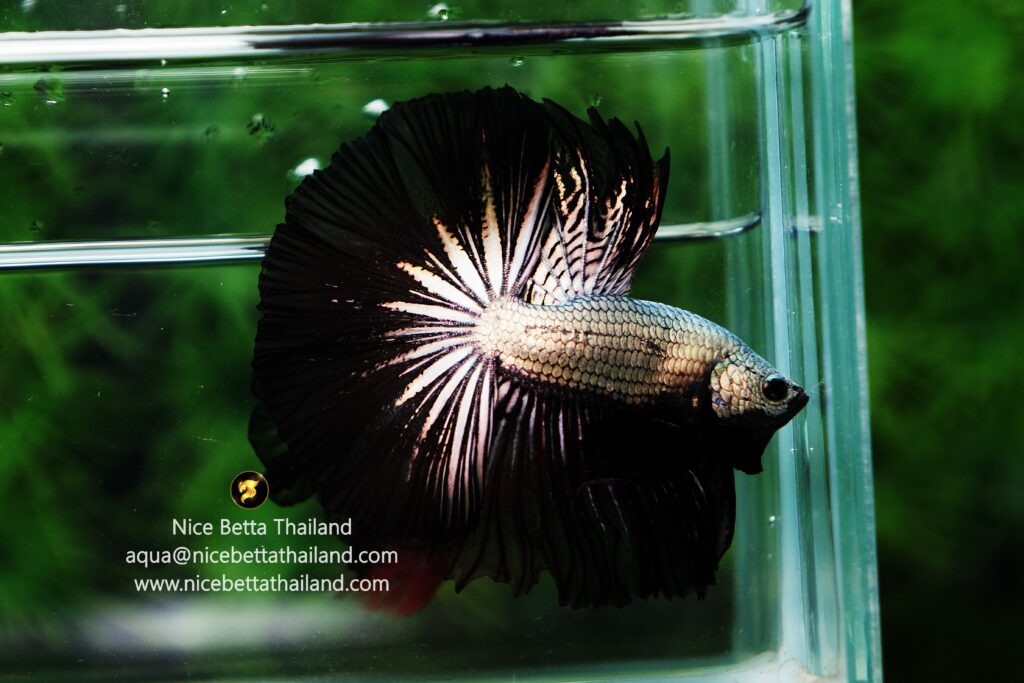
The Truth
The small containers bettas are kept in the stores are chock full of chemicals to keep bacteria, fungus and parasites at bay. They are unhealthy places for any fish to be in, and they are not meant to be long term homes.
Bettas do live in shallow pools in rice fields in Thailand. But, these puddles are interconnected And can extend for miles. If the puddle the betta is in gets stagnant, the betta has the ability to (and they do indeed) swim to another puddle or, if it is the dry season, jump up to 6 inches into another pool (or even from puddle to puddle until they reach one that has appropriate parameters).
In addition, the water they are in is continually refreshed with rainwater and decaying matter. In an aquarium, they are stuck and it is up to us to refresh the water and keep their tanks clean and non-toxic through routine partial water changes.
The minimum size tank that you should keep a betta in is 3 gallons. 5-10 gallons is ideal.
The smaller the tank the more you have to work on upkeep.
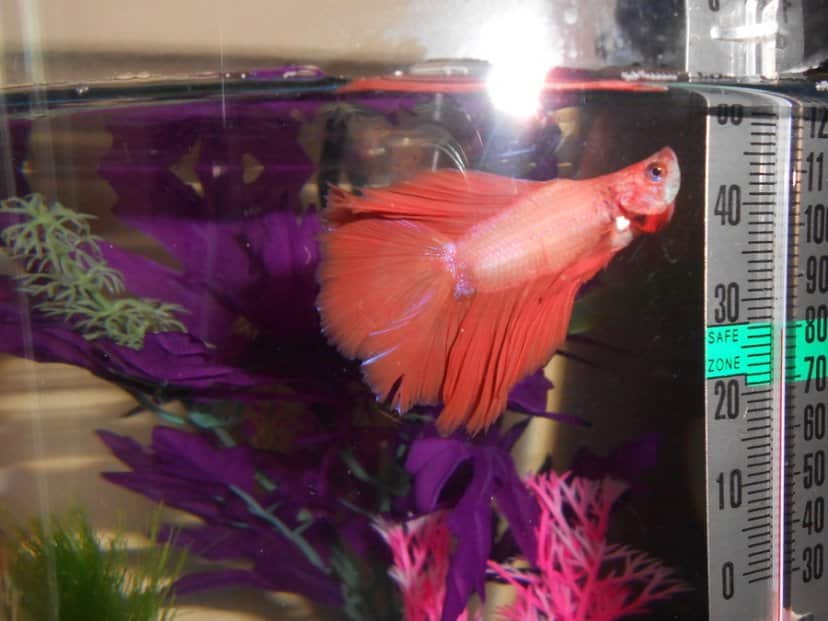
The Truth
Bettas originate in Thailand. This is a tropical country and they are tropical fish. The mean temperature in Thailand has been 27C (80F) over the last fifty years. Bettas do need heaters if not kept in a tropical country.
For those of you who like to see data I refer you to the Thai Meteorological Department.
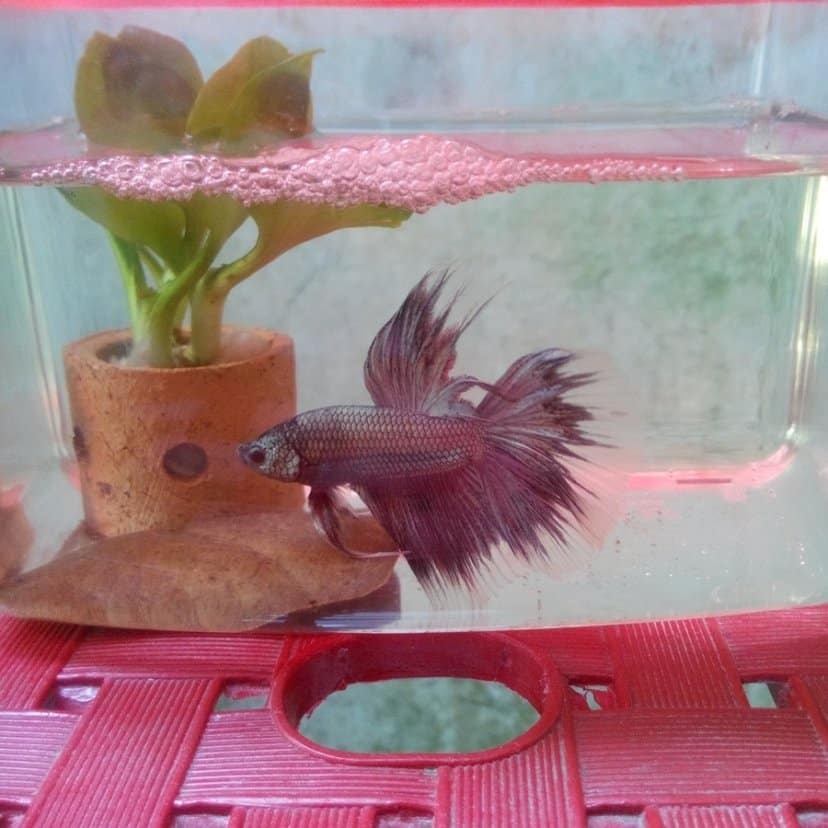
Bettas breathe oxygen from the surface so do not need a filter.
The Truth
Yes, Bettas do have labyrinth organs which allow them to rise to the surface and breathe oxygen, but this is just gives them supplemental oxygen. Bettas also absorb oxygen through their gills. A filter not only filters the water but also supplies added oxygen to the water. ALL FISH INCLUDING BETTAS NEED A FILTER.
Because betta have been bred to have elaborate fins, the filter flow should be gentle. It is best if you get an adjustable filter and run it at minimum flow. If you find that your betta is struggling against the flow or intake of your filter you can baffle it in several ways.
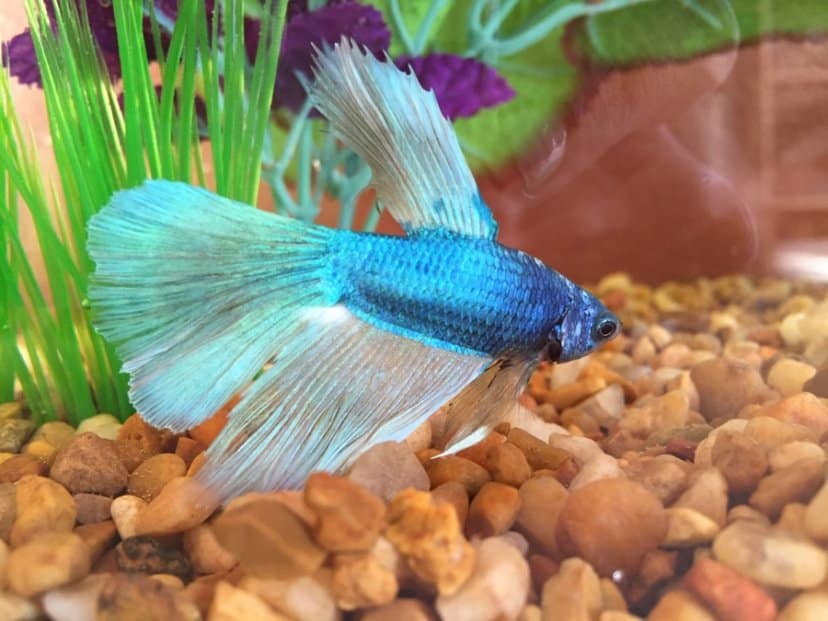
The Truth
All fish need a working nitrogen cycle. In a cycled tank there are several types of good bacteria that converts the ammonia (that your betta is continuously producing from breathing and living in the tank) to less toxic substances. If you add your betta to the aquarium before you have cultivated these bacteria, then the ammonia and other toxins will rise rapidly and you will have continuously be doing water changes to keep the water safe for the betta.
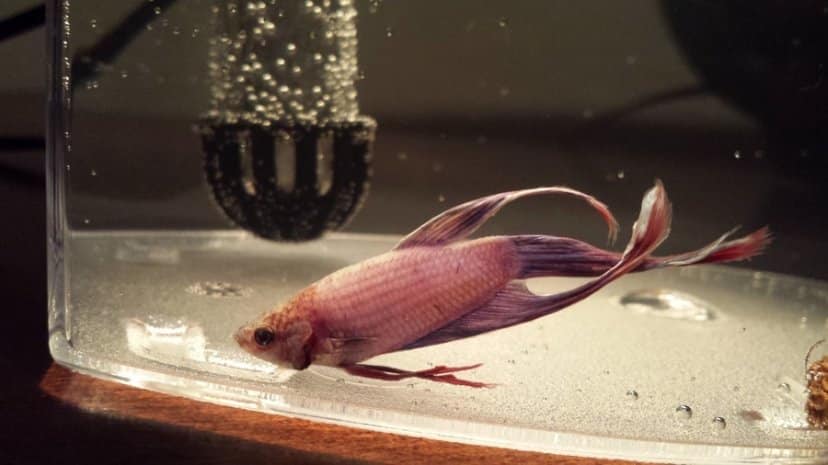
Betta fish Care
- Bettas require both a heater and a filter.
- They should be housed in tanks of 3 gallon or more; 5-10 gallons is ideal. The smaller then tank, the more onus is upon us to keep toxins at bay. A smaller tank requires more testing, more water changes, more care in not overfeeding, changing an adequate amount of water on time, and cleaning all waste and food immediately.
- There should always be some hiding spaces for them to chill out if they do not feel like being on display. Betta love real plants or silk plants that are soft. Plastic plants can sometime snag and tear their fins so should be avoided.
- By and large, male bettas should be kept alone with no companions. Large snails and shrimp can be kept with bettas, but there is a chance they might become lunch. Males will fight with any colorful or long-finned fish because they see them as competition. Bettas can be in a community tank if the tank is VERY large and there are many hiding places, but this take a little vigilence at first to make sure it is working.
- Females can be kept in communities if the tank is large enough and with sufficient hiding spaces but even here, there is always a possibility that one will become aggressive. You should expect, at first, there will be some fighting or aggression while they work out the hierarchy of the sorority.
Of course, like humans, fish have differing personalities and you CAN have a laid back male betta who coexist and interacts very nicely with other fish. But, this is the not the norm. Most bettas are aggressive especially to other pretty fish with flowing fins. They like to be the prettiest fish in the tank.
Looking for Rare betta fish?
If this betta care article was useful to you You can leaving a 5-star reviews for It’s an encouragement. For us make encourage us in our research. Research information about betta fish for to present useful information further
Also we have group talk about betta fish for sale and share any new tip take care information on Web3 socialFi group

Right now we have betta fish doctor help every bettas lover by top breeder in Thailand to cure or share more tip on Animalverse social
If your bettas fish sick or need tip to treat help or join event prize with AVC Token
Let’s join the group many top breeder will help to answers in betta fish community
More tip :
15 Common Betta Fish Diseases Prevention and Treatment
How to Keep a Betta Fish Alive for 4 Years
All of Betta Fish A Guide on Patterns, Color in the world






